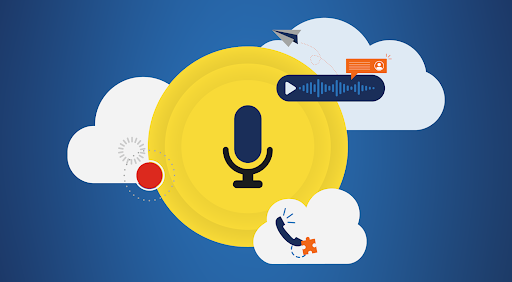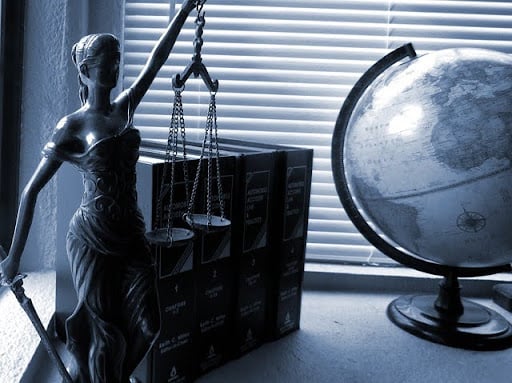Businesses can enhance customer service, train employees, and comply with regulations by utilizing call recording as a valuable tool. However, it is crucial to understand the requirements for retaining and retrieving call recordings in order to ensure compliance and prevent legal complications. This post will explore the essential information you need to know about call recording retention and retrieval.

Basic Storage Duration Considerations Phone Recording for Business
Storing call recordings and managing their duration has become a significant topic, particularly for modern SaaS companies reliant on digital communication. But how long should these recordings actually be kept?
Several factors come into play when making this decision:
- Call Purpose: The content and significance of the call are important considerations. High-stakes business negotiations or strategy discussions may require longer storage durations, serving as references or evidence in potential disputes. Conversely, routine team meetings or informal chats may not warrant extended retention.
- Regulatory Requirements: Certain industries, like finance, healthcare, or law, face strict concerning regulations regarding communication record storage. Compliance with these mandates is vital to avoid legal repercussions. As societal attitudes towards privacy evolve, companies need to stay updated on these dynamic regulations, both in terms of minimum and maximum duration requirements.
- Storage Constraints: Each recording takes up digital space, and as the volume of recordings grows, storage can become both technically and financially challenging. Companies must strike a balance between the value of retaining a recording and the associated costs and logistics of storage.
Legal Side of the Issue
When entering the realm of call recordings, it is crucial to consider not only the technical aspects but also the ethical and legal implications. Recording someone, particularly without their knowledge or consent, can give rise to serious privacy concerns, potentially resulting in mistrust or harm.
Please note that these regulations change over time. If you understand the importance of call recording, then all you need to do is learn the laws and follow them. There is no clear description in them, you must use the call recorder app iPhone or professional telephony. In some matters of recording calls, a business can make its own decisions. There is nothing stopping you from using an app to record phone call and then sending the data to cloud servers for storage. Moreover, iCall has sufficient recording quality for any purpose. If you need a call recorder or iPhone phone recorder, you can start with this application. Moreover, it has a free trial period.
Here is a brief overview of regulations in key regions.
- Europe (GDPR): Within the European Union, the General Data Protection Regulation (GDPR) mandates explicit consent from all participants for video call recording. Individuals also have the right to access any recorded data concerning them and can request its deletion.
- USA (CCPA): The California Consumer Privacy Act (CCPA) establishes guidelines for businesses operating in California. It requires informing participants before any recording takes place and grants individuals the right to be informed about and delete any personal data collected during such recordings.
- Singapore (PDPA): In Singapore, the Personal Data Protection Act (PDPA) emphasizes consent before collecting, using, or disclosing personal data, extending to video recordings where individuals can be identified.
- South Africa (POPIA): The Protection of Personal Information Act (POPIA) stipulates that the processing of personal information necessitates informed consent from the relevant individual.

Ethical Considerations
To maintain ethical standards, it is crucial to go beyond simply complying with the law. Building trust, respect, and professionalism in your interactions is equally important.
- Informed Consent: At the start of a call, inform participants that it will be recorded and give them the option to opt out or express concerns. This ensures transparency and allows for full consent.
- Transparency: Clearly communicate the purpose of recording and how the recordings will be used, whether it is for training, documentation, or any other relevant purpose. Openly sharing intentions helps minimize discomfort or suspicion.
- Data Protection: Store recordings securely by implementing encryption and other necessary security measures to prevent unauthorized access.
- Accessibility and Deletion: Participants should have the right to request access to the recordings they are involved in and there should be a clear policy outlining when and how these recordings will be deleted.
- Respect Cultural and Individual Differences: Recognize that what may be acceptable in one culture may be perceived as intrusive in another. It is crucial to be mindful of these nuances, especially when engaging with international audiences.
Conclusion
A financial institution typically needs to store recordings for at least five years, depending on the call’s nature. Brokers must retain blotters for a minimum of six years, whereas trade confirmation records only need to be kept for three years.
While some laws mandate a five-year retention period for call recordings, it is advisable to set up call recording data storage that allows you to indefinitely preserve selected files, ensuring compliance and facilitating dispute resolution.
In the European Union, call recordings should be maintained for as long as necessary for recording purposes. Furthermore, data subjects have the right to request access to any recordings they took part in. When such a request is made, the organization must provide the recording within 30 days. To avoid fines, it is important for an organization to have well-organized and easily accessible call recording data storage.
Interesting Related Article: “How Call Center Services Can Boost Your Business“
